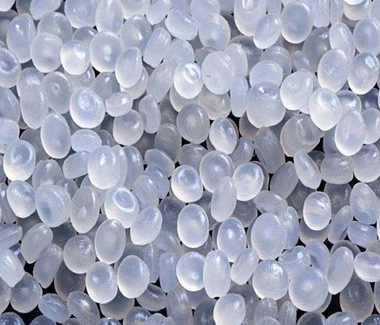①Polypropylene is odorless, tasteless and non-toxic. It is the lightest among commonly used resins;
②Polypropylene has excellent mechanical properties, including tensile strength, compressive strength and hardness, outstanding rigidity and
bending fatigue resistance. The movable hinge made of PP can withstand more than 7×107 times of folding and bending without damage at
low temperatures. Lower impact strength is poor. The tensile strength of PP is generally 21-39 MPa; the bending strength is 42-56 MPa, the
compressive strength is 39-56 MPa, the elongation at break is 200%~400%, the notched impact strength is 2.2-5 kJ/m2, and the low temperature
notch Impact strength 1-2 kJ/m2. Rockwell hardness R95~105;
③Polypropylene has good heat resistance, and the continuous use temperature can reach 110-120℃;
④Polypropylene has good chemical stability. Except for strong oxidants, it does not interact with most chemicals. Solvents cannot dissolve PP
at room temperature. Only some halogenated compounds, aromatic hydrocarbons and high-boiling aliphatic hydrocarbons can make it swell.
It is water-resistant. extremely good;
⑤Polypropylene has excellent electrical properties, good resistance to high-frequency electrical insulation, and good electrical insulation in humid
environments;
⑥Since there are many tertiary carbon atoms with methyl groups on the main chain of PP, the hydrogen on the tertiary carbon atoms is easily
attacked by oxygen. Therefore, PP has poor weathering resistance and must add antioxidants or ultraviolet absorbers;
Woven products (plastic woven bags, tarpaulins, ropes, etc.) have always accounted for a high proportion of PP resin consumption. They are the
largest consumer market for polypropylene and are mainly used for packaging of grain, fertilizers, cement, etc. China is the largest producer and
consumer of plastic woven products in the world today, and it is also the most potential plastic woven production and consumer market in the world.
As developed regions such as Europe and the United States, high labor costs and high-end markets will make them more inclined to high-end
consumer fields such as injection molding and sheet materials, while low-end plastic braiding and other products are mostly imported from developing countries.
Injection molded products are mainly used in small household appliances, daily necessities, toys, washing machines, cars and turnover boxes.
China's injection molding-grade polypropylene relies on a large proportion of imports. In recent years, the consumption share of injection molding
has increased rapidly, from 17% in 2006 to 22% in 2011, ranking second after plastic braiding. There is a large gap in domestic products in the field
of injection molding. In the world's polypropylene consumption structure, injection molding products account for the main share. Especially in
industrially developed countries and regions, the proportion of polypropylene injection molding products is higher. Therefore, China's injection
molding field has huge growth potential.

Polypropylene PP Raw Materials Granules
Polypropylene films mainly include BOPP, CPP, ordinary packaging films and microporous films. BOPP has many excellent properties such as light
weight, high mechanical strength, non-toxic, transparent, and moisture-proof. It is widely used in packaging, electrical engineering, electronic
appliances, tapes, Label film, film, lamination and many other fields, among which the packaging industry uses it the most. Different application
fields have greatly different technical requirements for polypropylene film BOPP, among which the application fields of film capacitors have the
highest requirements. Due to low processing technology requirements and relatively large profits, there has been overheating of investment in the
past few years.
Polypropylene fiber (ie polypropylene) refers to a fiber product made from polypropylene as raw material through melt spinning. Because polypropylene
fiber has many excellent properties, it is increasingly used in the three major fields of decoration, industry, and clothing, and has become the second
largest variety of synthetic fibers. Polypropylene fiber is divided into short fiber, filament, non-woven fabric (spunbond and melt-blown), tobacco tow,
bulked continuous filament (BCF), etc. Its application areas include packaging, cigarette filter materials, geotechnical, building materials, Clothing,
carpets, sanitary products, etc.
Polypropylene pipes have the characteristics of high temperature resistance, easy pipe connection (thermal welding, electric welding, pipe fitting
connection), and recyclability. They are mainly used in building water supply systems, heating systems, farmland water delivery systems, and chemical
pipeline systems.
